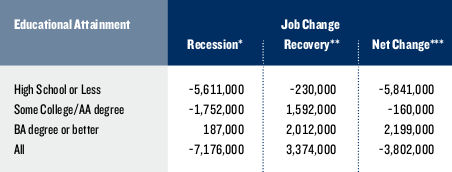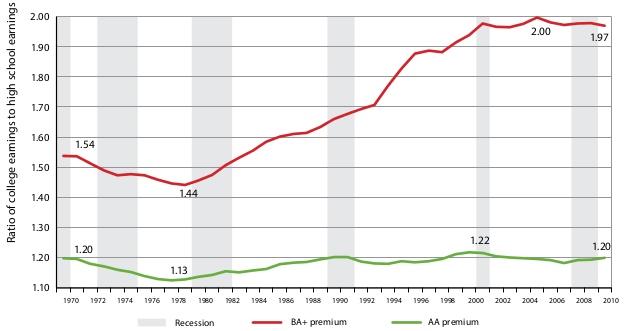A new report from Georgetown researchers details the effect of the recent recession and recovery on jobs, broken up by educational attainment. The New York Times and the Washington Post have coverage. Relying on Census data, the researchers figure out how many jobs were lost or gained during the recession and recovery for individuals with high school degrees or less, individuals with some college or associate degrees, and individuals with bachelor’s degrees or better.

During the recession, individuals with high school degrees or less lost over 5.6 million jobs, while individuals with bachelor’s degrees or more actually gained 187,000 jobs. During the economy recovery, individuals with high school degrees or less did not get back those 5.6 million jobs: they continued losing jobs. Individuals with college degrees or more, however, rapidly took on jobs during the recovery.
What’s interesting here is that most of the recession’s job losses were among those with high school education or less, while most of the recovery’s job gains were among those with college degrees or more. So we actually had a big jobs swing away from those with high school or less and towards those with college or more.
The report also includes information on the college wage premium. Most notably, individuals with bachelor’s degrees or more make, on average, around twice as much as individuals with only high school degrees.

This report provides even more support for the contention that college graduates are actually doing pretty well, relatively speaking. The serious economic suffering that goes on in this country is shouldered by the majority of people who do not get a college degree (only about 30 percent of the country have a bachelor’s degree). If we are to make serious strides for economic justice, it is those with high school degrees or less that actually matter. We need to do less talking about student debt, tuition, and the college graduate job market, and more talking about the issues that face non-degreed folks.